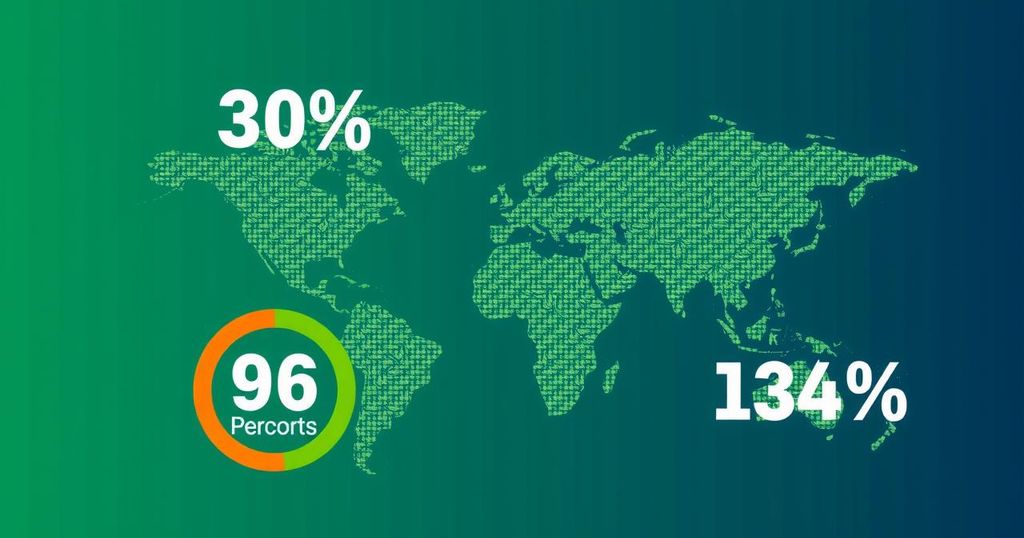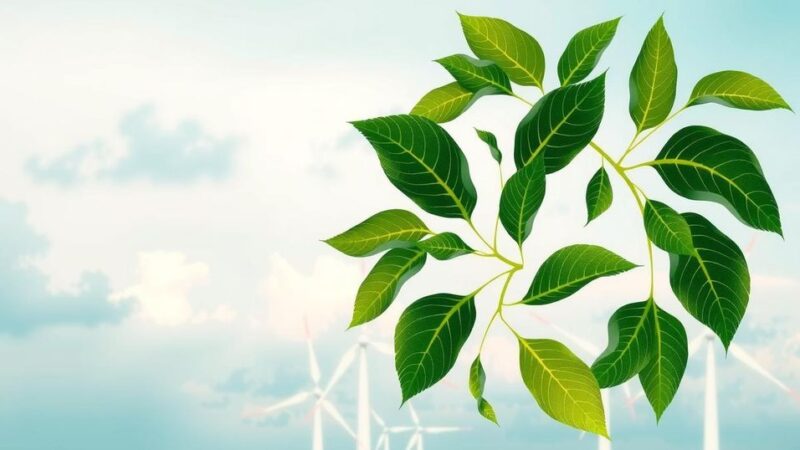The United Nations’ WMO reports alarming levels of greenhouse gases, driven by significant contributions from fossil fuel emissions and worsened by severe wildfires. Carbon dioxide concentrations have reached a historic high, reminiscent of levels from millions of years ago when temperatures were significantly warmer. As nations prepare for the upcoming U.N. climate negotiations, the urgency to mitigate climate change and adhere to agreed temperature limits grows, amidst concerns of climate feedback loops exacerbating the crisis.
A recent report from the United Nations’ World Meteorological Organization (WMO) indicates concerning levels of greenhouse gases in the atmosphere, exacerbated by severe wildfires and other environmental factors in 2023. The report highlights that carbon dioxide concentrations have reached their highest levels in millions of years, comparable to conditions when global temperatures were notably higher, presenting a significant threat in terms of climate change. The persistent emissions from fossil fuels and industrial activities outpace the natural absorption capabilities of oceans and forests, leading to an accumulation of harmful gases in the atmosphere. Ko Barrett, the WMO’s deputy secretary general, emphasized the critical implications of every increment of temperature increase, mentioning its effects on glaciers, sea levels, extreme weather, biodiversity, and economic systems. This alarming situation is underscored by the upcoming 29th U.N. climate negotiations scheduled for next month in Azerbaijan, a nation heavily reliant on fossil fuel exports and currently under authoritarian governance. The increased reliance on fossil fuels contributes to the currently observed temperature rise of approximately 1.2 degrees Celsius since preindustrial times and poses significant challenges in achieving the climate objectives agreed upon by nearly 195 nations in 2015, particularly the aim to restrict temperature increases to 1.5 degrees Celsius. The WMO’s bulletin indicates that recent severe weather events, particularly unprecedented wildfires in Canada and Australia, contribute to previously high carbon emissions and diminish the biological capacity of forests to sequester carbon as climatic conditions shift toward El Niño effects, promoting warmer temperatures that hinder plant growth. In 2023, atmospheric carbon dioxide concentrations averaged 420 parts per million, marking a troubling increase that has persisted for over a decade at a rate exceeding 2 parts per million annually. This situation could initiate a feedback loop where rising temperatures exacerbate greenhouse gas emissions from natural sources, turning the environment into a more significant contributor to climate change rather than a mitigator. These critical feedback mechanisms pose profound repercussions for global ecosystems and societies, emphasizing the urgent need for collective international action against climate change.
The issue of rising greenhouse gas emissions is a paramount concern globally, particularly in the lead-up to important climate negotiations. The burgeoning concentrations of carbon dioxide and other greenhouse gases in the atmosphere can result in severe impacts such as increased temperatures, rising sea levels, and the exacerbation of extreme weather events. The WMO’s annual Greenhouse Gas Bulletin serves as an essential tool in illustrating these trends and fostering urgent dialogue on necessary actions to mitigate climate change. The upcoming 29th U.N. climate negotiations will be pivotal as countries seek to reaffirm their commitment to climate targets in light of the alarming data presented by the WMO.
In conclusion, the findings from the WMO highlight the urgent need for immediate and comprehensive action to combat climate change and its dire consequences. The increased levels of greenhouse gases, particularly carbon dioxide, along with the potential for feedback loops resulting from environmental changes, necessitate a unified global response as nations prepare for critical discussions in the forthcoming climate negotiations. The situation underscores the importance of reducing emissions and enhancing efforts to meet internationally agreed-upon climate targets to secure a sustainable future.
Original Source: www.benarnews.org






